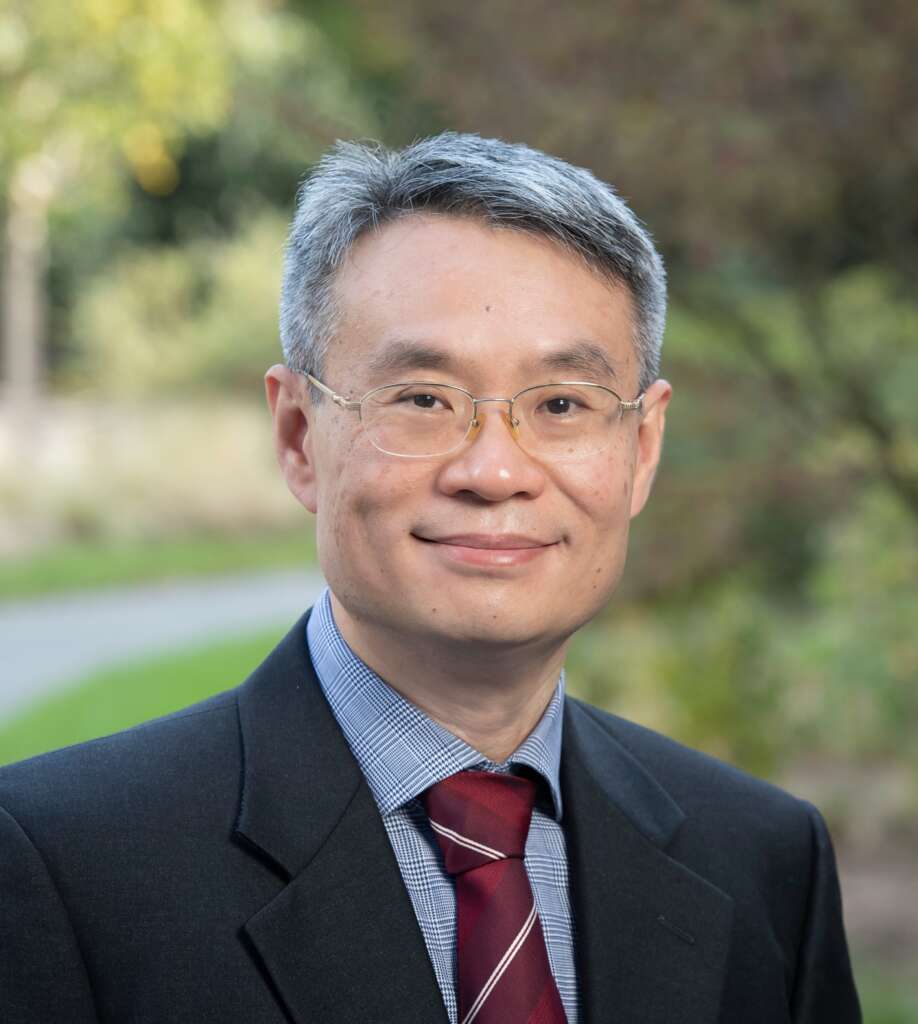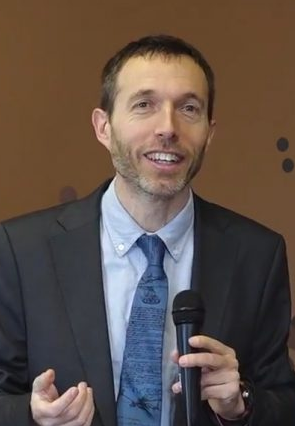Panelist Bios:

Ryan Baker is Professor at the University of Pennsylvania, and Director of the Penn Center for Learning Analytics. Baker was the founding president of the International Educational Data Mining Society, is currently serving as Editor of the journal Computer-Based Learning in Context, is Associate Editor of the Journal of Educational Data Mining, was the first technical director of the Pittsburgh Science of Learning Center DataShop, and currently serves as Co-Director of the MOOC Replication Framework (MORF). Baker has co-authored published papers with over 400 colleagues and has been cited over 25,000 times.

Dr. Michelle D. Barrett is Vice President of Research, Assessment, and Learning Engineering for Edmentum where she leads initiatives in learning engineering, efficacy research, psychometrics and assessment design. After starting her career in education teaching middle and high school mathematics, Dr. Barrett has since held research, technical, and leadership roles at the Colorado Commission on Higher Education, the Colorado Department of Education, CTB/McGraw-Hill, Pacific Metrics, and ACT. She is published in the Journal of Educational and Behavioral Statistics, the Journal of Educational Measurement, the International Journal of Artificial Intelligence in Education, and Psychometrika. Dr. Barrett served on the Board of Directors for the non-profit organizations We Can Learn and IEEE ISTO AIS Consortium and on the advisory board for the Ed SAFE AI Alliance and chaired the inaugural IEEE Industry Consortium on Learning Engineering SIG on AI and Adaptive Technology. Dr. Barrett earned her B.S. from Stanford University, her M.Ed. from Harvard University, a graduate certificate in large scale assessment from the University of Maryland, and her Ph.D. from the University of Twente, Netherlands.

Hua-Hua Chang is the Charles R. Hicks Chair Professor in the Department of Educational Studies at Purdue University. Dr. Chang’s interests are broad, encompassing both theoretical development and applied methods, including computerized adaptive testing, cognitive diagnostic modeling, asymptotic properties in item response theory, and test fairness. More recently, his work has focused on developing web-based assessment tools to facilitate personalized learning. Dr. Chang has served as Fulbright Specialist twice, Australia 2005, and Colombia 2019. He is a past president of the Psychometric Society (2012-2013), an elected fellow of the American Educational Research Association (AERA) and the American Statistical Association (ASA). He was the recipient of the 2017 AERA’s E. F. Lindquist Award and the 2021 Career Contribution Award of National Council on Measurement in Education (NCME).

Yiran Chen is the John Cocke Distinguished Professor of Electrical and Computer Engineering at Duke University and serving as the director of the NSF AI Institute for Edge Computing Leveraging the Next-generation Networks (Athena). His research interests include memory and storage systems, machine learning and neuromorphic computing, and mobile computing systems. Dr. Chen has 600 technical publications and has been granted 96 US patents. He is now serving as the Editor-in-Chief of the IEEE Circuits and Systems Magazine. He received 11 best paper awards and 1 best poster award. He is the Fellow of the AAAS, ACM, and IEEE.

Dr. Kristen DiCerbo is the Chief Learning Officer at Khan Academy, where she is responsible for developing and implementing a research-based teaching and learning strategy for Khan Academy’s offerings. She leads the content and product management teams. Dr. DiCerbo’s career has focused on embedding insights from education research into digital learning experiences. Prior to her role at Khan Academy, she was Vice-President of Learning Research and Design at Pearson, served as a research scientist supporting the Cisco Networking Academies, and worked as a school psychologist. Kristen has a Ph.D. in Educational Psychology from Arizona State University.

Josep Domingo-Ferrer is a Distinguished Professor of Computer Science and an ICREA-Acadèmia Research Professor at Universitat Rovira i Virgili, Tarragona, Catalonia. He is the founder and the director of CYBERCAT-Center for Cybersecurity Research of Catalonia. He also founded and leads the UNESCO Chair in Data Privacy. He is an associated researcher at the VP-IP Chair of Institut Mines-Télécom, Paris, France. His research interests include security and privacy technologies, anonymization/statistical disclosure control, privacy and anti-discrimination in machine learning and data mining, and cryptography. More generally, he is interested in ethics by design in information technology. He is an IEEE Fellow, a Fellow of the Asia-Pacific Artificial Intelligence Association, an ACM Distinguished Scientist and an Elected Member of Academia Europaea and the International Statistical Institute. He has received several research awards.

Wayne Holmes (PhD, University of Oxford) is an Associate Professor in the Institute of Education, at University College London. His research takes a critical studies perspective to the teaching and application of Artificial Intelligence in educational contexts (AI&ED), and their ethical, human, and social justice implications. Wayne is leading the Council of Europe’s AI&ED project, which is developing a legal instrument for the use of AI in education. He is also a Consultant on AI&ED for UNESCO, for which he co-wrote AI and Education: Guidance for Policy-makers, and a Senior Researcher for the International Research Centre on Artificial Intelligence.

Kenneth R. Koedinger is a professor of Human Computer Interaction and Psychology at Carnegie Mellon University. His research has contributed new principles and techniques for the design of educational software and has produced basic cognitive science research results on the nature of student thinking and learning. Koedinger directs LearnLab, which started with 10 years of National Science Foundation funding and was a co-founder of Carnegie Learning, Inc. that has brought Cognitive Tutor based courses to millions of students. Dr. Koedinger has authored over 250 peer-reviewed publications and has been a project investigator on over 45 grants. In 2017, he received the Hillman Professorship of Computer Science and in 2018, he was recognized as a fellow of Cognitive Science.

Alina von Davier, PhD. is Chief of Assessment at Duolingo and CEO and Founder of EdAstra Tech. Von Davier is a Honorary Research Fellow at the University of Oxford and a Senior Research Fellow at Carnegie Mellon University. She is also a VC Partner with LearnLaunch. Von Davier operates at the forefront of Computational Psychometrics. Her current research interests involve developing psychometric methodologies in support of digital-first assessments, such as the Duolingo English Test, using techniques incorporating machine learning, data mining, Bayesian inference methods, and stochastic processes. Her co-authored book on adaptive and multistage testing Computerized Adaptive and Multistage Testing with R (2017) and the R package to support the applications received the B. Hanson Award from National Council of Measurement in Education (NCME) in 2022. She won the Career Award from the Association of Test Publishers in 2020.